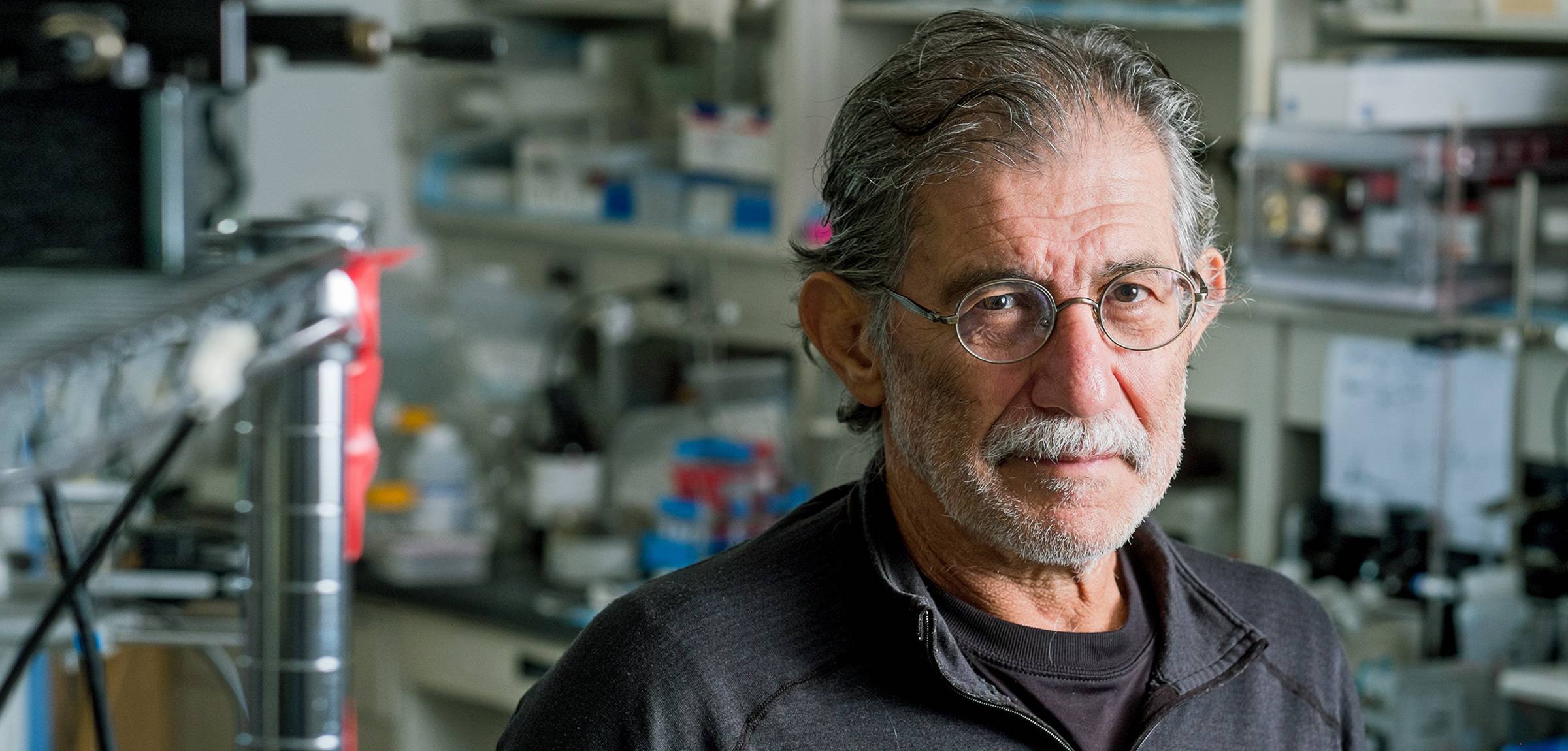Brian T. Chait, D.Phil.
Camille and Henry Dreyfus Professor
- Laboratory of Mass Spectrometry and Gaseous Ion Chemistry (opens in new window)
Mass spectrometry is a powerful analytical technique that can accurately measure the molecular masses of individual biomolecules, including peptides, proteins, and large intact protein assemblies. Chait’s lab specializes in the development of mass spectrometers and other tools and methods for investigating a variety of biological and biochemical phenomena.
Knowledge of the makeup, structure, and dynamics of protein assemblies is key to understanding many cellular processes. The Chait lab devises new tools, including those based on quantitative mass spectrometry, to identify and study protein interactions within these assemblies. Another primary goal of the lab is to derive a functional definition of cellular protein assemblies and their roles in a variety of cellular processes.
The lab has developed potent approaches for elucidating proximal, distal, and transient protein–protein interactions in cellular milieus, and for determining distance restraints between amino-acid residues within large protein assemblies by chemical cross-linking and mass spectrometry. The long-term goal of this research is to develop a molecular microscope for defining cellular systems with scales spanning all the way from the dimensions of a cell to the atomic resolution of molecules.
The lab has also developed mass spectrometric approaches for defining repertoires of high-affinity nanobodies that develop within llamas against any given antigen, and is investigating their utility in a host of applications including immunotherapy against cancers and the SARS-CoV-2 coronavirus.
Work is currently underway in Chait’s lab to develop novel spectrometry instrumentation for ultrasensitive, rapid, and comprehensive characterization of proteomes, the entire complement of proteins within cells, at the level of single cells. Existing methods of tandem mass spectrometry involve isolating the ion of interest, fragmenting it, and then measuring the mass spectrum of the fragments. However, much of this process is inherently extremely wasteful, since, at any given time, all ion species except for the one that is specifically isolated are thrown away. The Chait lab is investigating new strategies for overcoming this inefficiency using newly devised instrumentation for carrying out massively parallel mass spectrometry.
Chait is a faculty member in the David Rockefeller Graduate Program, the Tri-Institutional M.D.-Ph.D. Program, and the Tri-Institutional Ph.D. Program in Chemical Biology(opens in new window).
